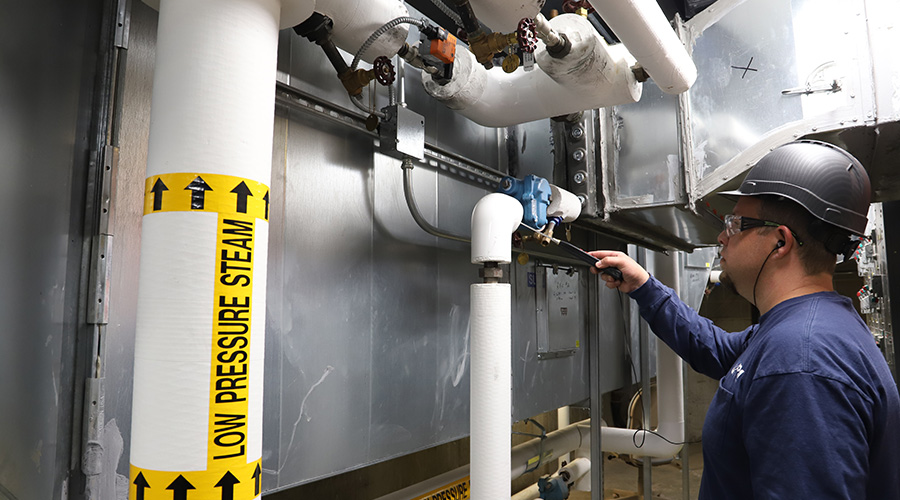Security should be a high priority for both inpatient and outpatient pharmacies as the risk of theft and robbery are high. Hospital inpatient pharmacies can be found within the premises of the facility and typically stock a variety of medications for patients and can be easily accessed by authorized individuals. Outpatient pharmacies, sometimes also found on hospital property but usually off campus, are often in high traffic areas like hospital lobbies or close to primary entrances to serve customers.
Inpatient pharmacies are used for the dispensing and control of medications for patients within the hospital. All hospitals have an inpatient pharmacy, but a security best practice is to not have signage directing individuals to the pharmacy area to discourage theft from outsiders. Hospital pharmacies should also have the ability to identify all visitors before allowing them to enter. This could be a security window or cameras. Patients and family members should not have access to the pharmacy and access should be extremely restricted to only persons approved by the Pharmacist on-duty. Security cameras should also constantly monitor all egress and ingress points, intrusion and panic alarm systems should be fully functional and tested often to protect this high-risk area.
Many outpatient pharmacies lease their space and are not affiliated with or owned/managed by the hospital, such as Walgreens or CVS for example, but there are hospitals that do have outpatient services available. Generally, the outpatient pharmacy will fill any legally authorized prescription as would any stand-alone drug store. Most of these pharmacies also have a retail component to sell over-the-counter medications and other drug store items so security should be developed as it would for any other retail establishment on campus with anti-robbery training, as well as pharmacy security training.
Additionally, it is extremely important for the pharmacy director and security director to have a close relationship and regularly perform risk assessments. There are also federal requirements pharmacies must follow. The DEA’s Office of Diversion Control sets the rules for pharmacies. The Pharmacist’s Manual: An Informational Outline of the Controlled Substances Act can be found here.
Be familiar with what your state’s federal requirements are by using The Joint Commission’s website as a resource.
Bukowski is the vice president of healthcare, AlliedBarton Security Services.

 Biofilm 'Life Raft' Changes C. Auris Risk
Biofilm 'Life Raft' Changes C. Auris Risk How Healthcare Restrooms Are Rethinking Water Efficiency
How Healthcare Restrooms Are Rethinking Water Efficiency Northwell Health Finds Energy Savings in Steam Systems
Northwell Health Finds Energy Savings in Steam Systems The Difference Between Cleaning, Sanitizing and Disinfecting
The Difference Between Cleaning, Sanitizing and Disinfecting Jupiter Medical Center Falls Victim to Third-Party Data Breach
Jupiter Medical Center Falls Victim to Third-Party Data Breach